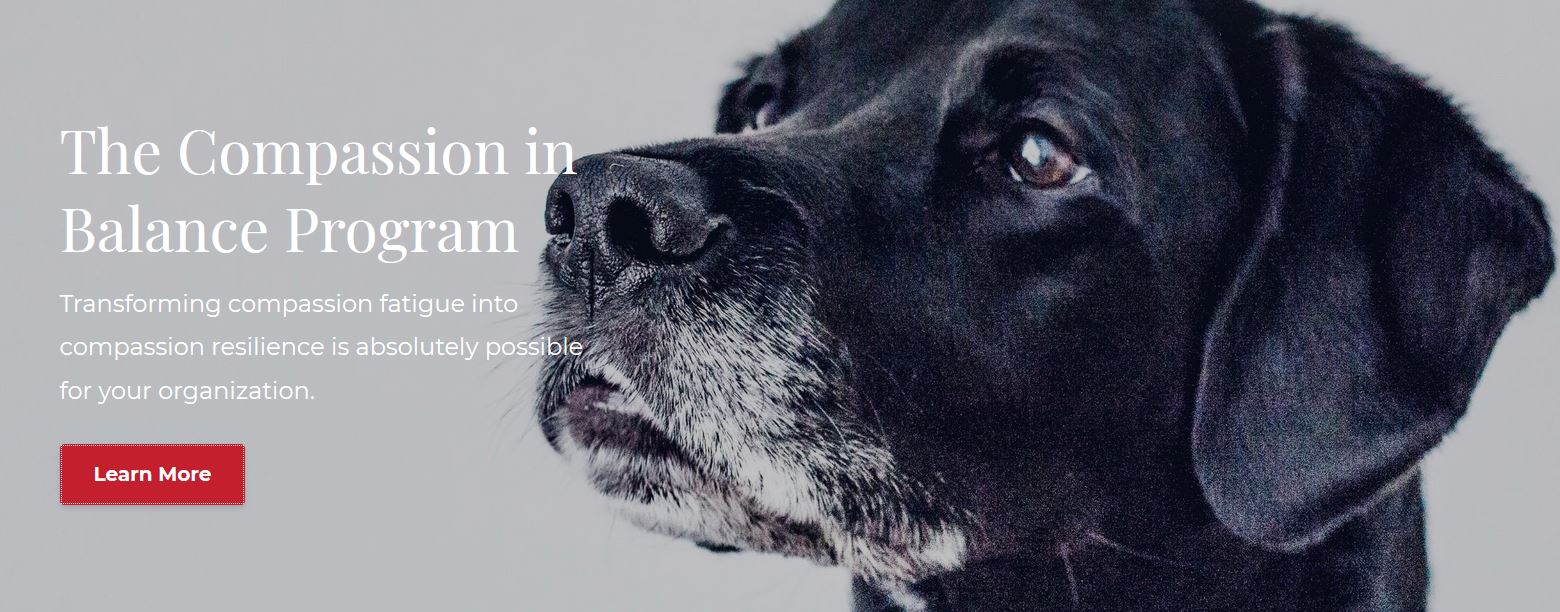Module 9: The Role of the Shelter Veterinarian
Managing Compassion Fatigue Throughout the Organization
Trauma isn’t limited to veterinarians or to those involved with life and death decisions. Thankfully, a new online program designed for total organizational health has recently launched to help animal welfare staff thrive in trauma-exposed work. A more resilient organization is absolutely possible.
“Animal welfare professionals are particularly susceptible to secondary traumatic stress because of the vulnerable nature of the animals they care for and the unpredictable nature of their jobs. When staff are suffering, this lessens the organization’s ability to achieve their mission. Developing resilience through professional training can buffer workers from emotional exhaustion and improves their overall well-being, protecting them from the predictable risks of secondary traumatic stress on the job. The Compassion in Balance program is here to help.”
-Jessica Dolce
Jessica Dolce: Compassion in Balance
Is your organization experiencing one or more of the following scenarios?
Reactivity and Negativity: You have employees who are having a hard time managing their stress and emotions. You’re seeing lots of inappropriate outbursts, complaining, gossip, and negativity between coworkers.
Turnover, Absenteeism, and Apathy: You have a high turnover rate, workers’ compensation claims are increasing, staff call out sick often, and when they do come into work they’re apathetic and not completing their work tasks.
Exhaustion and Overwhelm: Your staff is struggling to stay engaged and energized. They feel like they’re not making a difference, despite how hard they’re working. You can see they’re feeling worn out physically, emotionally, and mentally.
Imagine this: Front line employees are energized and optimistic about their work. They’re less reactive now that they understand how their work affects them and how to regulate their stress, so they respond more calmly to difficult situations. Your staff understands why and how to take care of themselves. Your organization supports their efforts by incorporating staff wellness into policies and practices. Lunch breaks and vacations are taken (without guilt!) and people feel restored. Conversations between coworkers are more constructive. People know they are appreciated for their contributions and feel safe talking with their supervisors about their challenges. Your retention rate keeps increasing and morale is high. Your staff knows how to monitor themselves for compassion fatigue and when to access professional mental health help. Your managers feel more competent talking with their staff when they see them struggling and stressed. Leadership is clear on the organizational efforts needed to support staff and, through ongoing efforts, continues to become a more trauma-informed, resilient, and effective organization.
THIS PROGRAM IS FOR YOU IF:
- You have buy-in from the top down. This program can only succeed with the commitment of supervisors and on-the-ground leadership in charge of implementation.
- You’re open to looking at your policies and procedures to make changes, over time, if necessary.
- You’re willing to have transparent conversations with your staff as a way to move forward.
- You have a point-person(s) willing to step up and facilitate the implementation of the program’s multiple live and pre-recorded components.
THIS PROGRAM IS NOT FOR YOU IF:
- You expect a quick fix. Addressing stress/trauma-exposure and building resilience takes an investment of resources, commitment, and time.
- Your leadership is not on board and expects staff to manage this issue on their own.
- You are not able to set aside one hour a month for team trainings and discussions.
- You are looking for professional mental health help for your staff. This is an educational program, not a substitute for professional mental health care.


